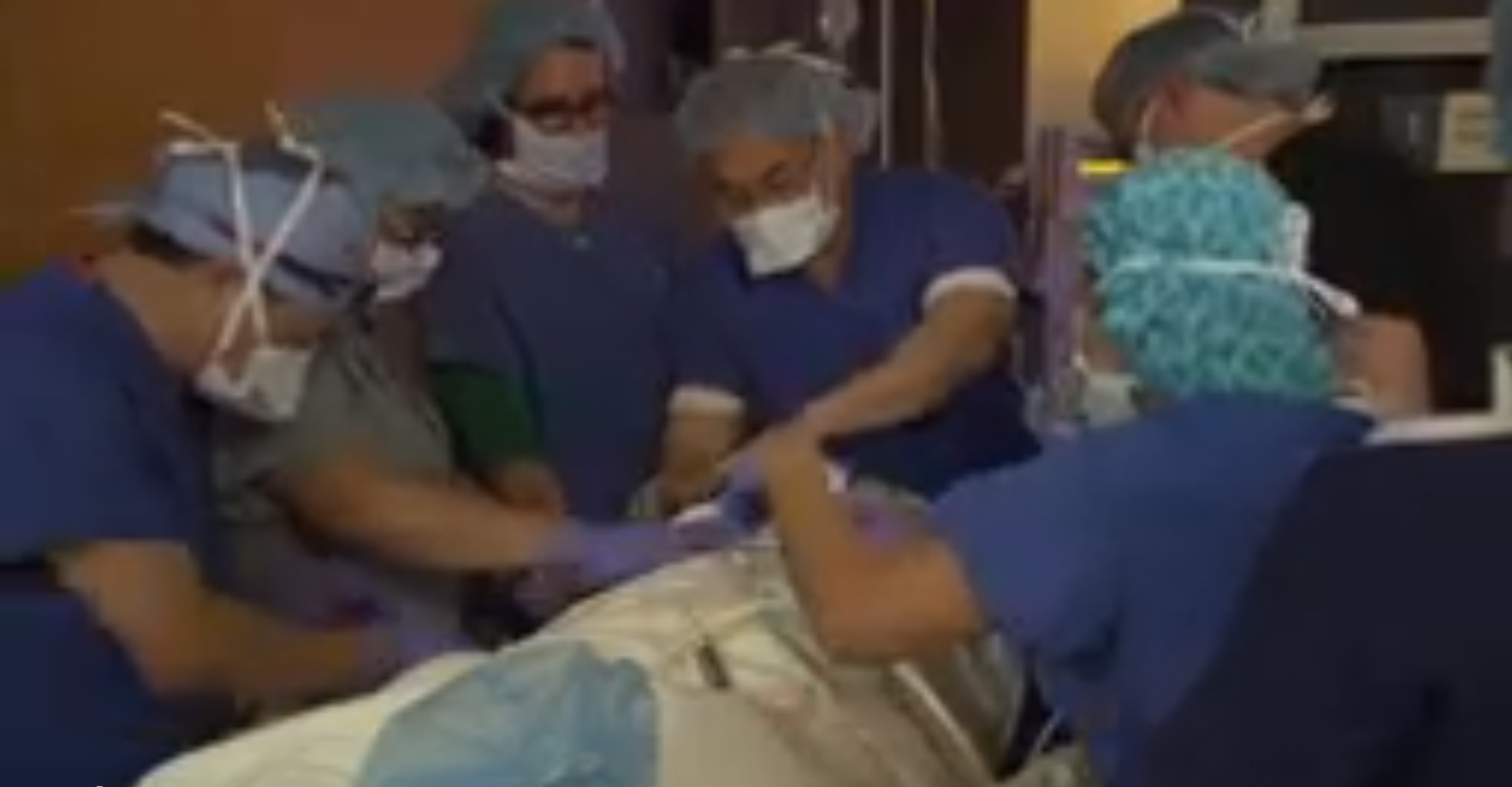
May 1, 2014 — Neurosurgeons at UC San Diego Heath System have, for the first time, combined real-time magnetic resonance imaging (MRI) technology with novel noninvasive cellular mapping techniques to develop a new biopsy approach that increases the accuracy of diagnosis for patients with brain cancer.
“There are many different types of brain cancer. Making an accurate diagnosis is paramount because the diagnosis dictates the subsequent course of treatment,” said Clark C. Chen, M.D., Ph.D., vice chairman of research, division of neurosurgery, UC San Diego School of Medicine. “For instance, the treatment of glioblastoma is fundamentally different than the treatment for oligodendroglioma, another type of brain tumor.”
Chen said that as many as one third of brain tumor biopsies performed in the traditional manner can result in misdiagnosis. He cited two challenges with conventional biopsy.
“First, because distinct areas of brain tumors exhibit different cell densities and higher cell densities are generally associated with higher tumor grade, biopsies taken from one region may yield a different diagnosis than if another area is biopsied,” said Chen. “Second, because tumors are hidden within the brain, surgeons must use mathematical algorithms to target where the biopsy should occur. As with all calculations, the process is subject to errors that the surgeon cannot easily correct in real time once the biopsy has begun.”
The research team applied an MRI technique called restriction spectrum imaging (RSI) to visualize the parts of the brain tumor that contain different cell densities. “RSI allows us to identify the regions of the cell that are most representative of the entire tumor,” said Chen. “By targeting biopsies to these areas, we minimize the number of biopsies needed but still achieve a sampling that best characterizes the entire tumor.”
To ensure a targeted biopsy, Chen performs the procedure in the MRI suite while the patient is under general anesthesia. Because conventional biopsy equipment cannot be used in the MRI, Chen uses a special MRI-compatible system called ClearPoint. This system utilizes an integrated set of hardware, software and surgical equipment to allow the surgeon to target and visualize the path of the biopsy as well as the actual biopsy site intraoperatively.
“Surgeons have been performing brain biopsies in a near blind manner for the past 50 years. The ability to see where the biopsy needle is located and where the biopsy is being performed in real time is groundbreaking,” said Chen. “This combination of technologies gives me an opportunity to immediately adjust my surgical approach while minimizing risk.”
The study and application of RSI is currently being performed at the newly established Center for Translational Imaging and Personalized Medicine and Center for Theoretical and Applied Neuro-Oncology at UC San Diego School of Medicine. The RSI technology was developed by Anders M. Dale, Ph.D., vice chairman, department of radiology, UC San Diego School of Medicine. The ClearPoint system was developed by MRI Interventions Inc., of Irvine, Calif.
For more information: http://cancer.ucsd.edu/brain


 February 13, 2026
February 13, 2026 









